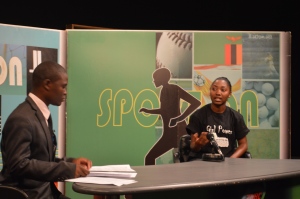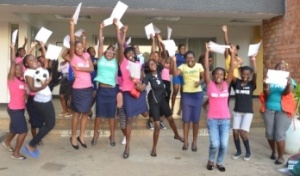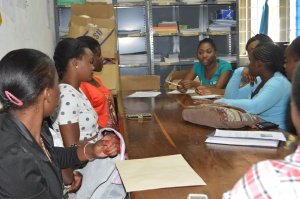
Our General Secretary Ms. Lombe Mwambwa was a guest on the Sunrise Show on Muvi TV this morning to discuss the participation of women in professional sport in Zambia.
Professional Sport in Zambia: Professional sport is sport that is organised in a structure where athletes engage in sport as a form of paid employment. For a profession to exist and function, one needs the structures and systems of training the potential employees and we need institutions to hire them and provide profitable work and these institutions must be engaged in activity that is sustainable and other elements that are supportive including regulation and promotion.
‘In the case of sport, we would need our education institutions and training facilities for sport to be aligned to this purpose, sports clubs will need to run as businesses that employ athletes and can provide sustainable income to them. At present sport is run as voluntary institutions that employ staff in some cases but barely employs athletes.’
Where are the Women?: There are barely any women in professional sport in Zambia, there are however, some Zambian women who are professional sports persons but often they are employed outside Zambia. Professional sport in Zambia is underdeveloped and so there are few opportunities for both men and women to engage with sport in this way. These opportunities are mainly for men because the clubs that employ athletes are men’s sports clubs. These are mainly football and boxing. ‘Engaging in professional sport in Zambia is precarious even for men, because this is a field of industry that is barely integrated in our economic and business sector.’
To get into professional sport, one needs to have achieved a level of expertise in their sport and this is dependent on their entry into sport and what support services they have available to them including training and exposure to recruitment platforms such as agents and scouting services.
A large number of women and girls drop out of sport at a stage when they need to invest more time and resources into developing towards professional participation. One of the contributing factors is the limited opportunities for professional practice of sport. So women play as long as they can and then they leave to focus on developing their employeability in non-sport parts of the economy.
‘Gender stereotypes that undervalue women in sport are a major barrier, consider the case of football, the gap in financial and emotional investment that goes into the men’s national team versus that which goes into the women’s national team demonstrates this.’
Actively investing in the professionalization of sport will provide an opportunity for expanding employment opportunities for a part of the Zambian demographic, young adults, which is in desperate need of income. It will also contribute to linkages to other service industries and most importantly, enable a chance for those who would want to earn a living doing sport. By making sport professional, the institutional arrangements will be clearer and if done in a gender sensitive way, can provide equitable opportunities for men and women.
Why sport is important for women: Sport is important for women’s well being, for everyone’s well being. ‘If you look at the human body, we are designed to move and so keeping active is such as huge part of our lives. Our well being is dependent on a balance of work and leisure. Sport provides a regular and organised format for us to have physically active recreation and play, contributing to health and social connection.’
Getting more women involved in sport: ‘Getting more women participating in sport in general will require a cultural adjustment in order to have our society recognising women being physically active and sporty as normal.’ We need as a nation to invest in public spaces for physical activity, we should increase public understanding and appreciation of sport and physical activity and address our social perceptions that negatively impact on what activities women can engage in or not.




